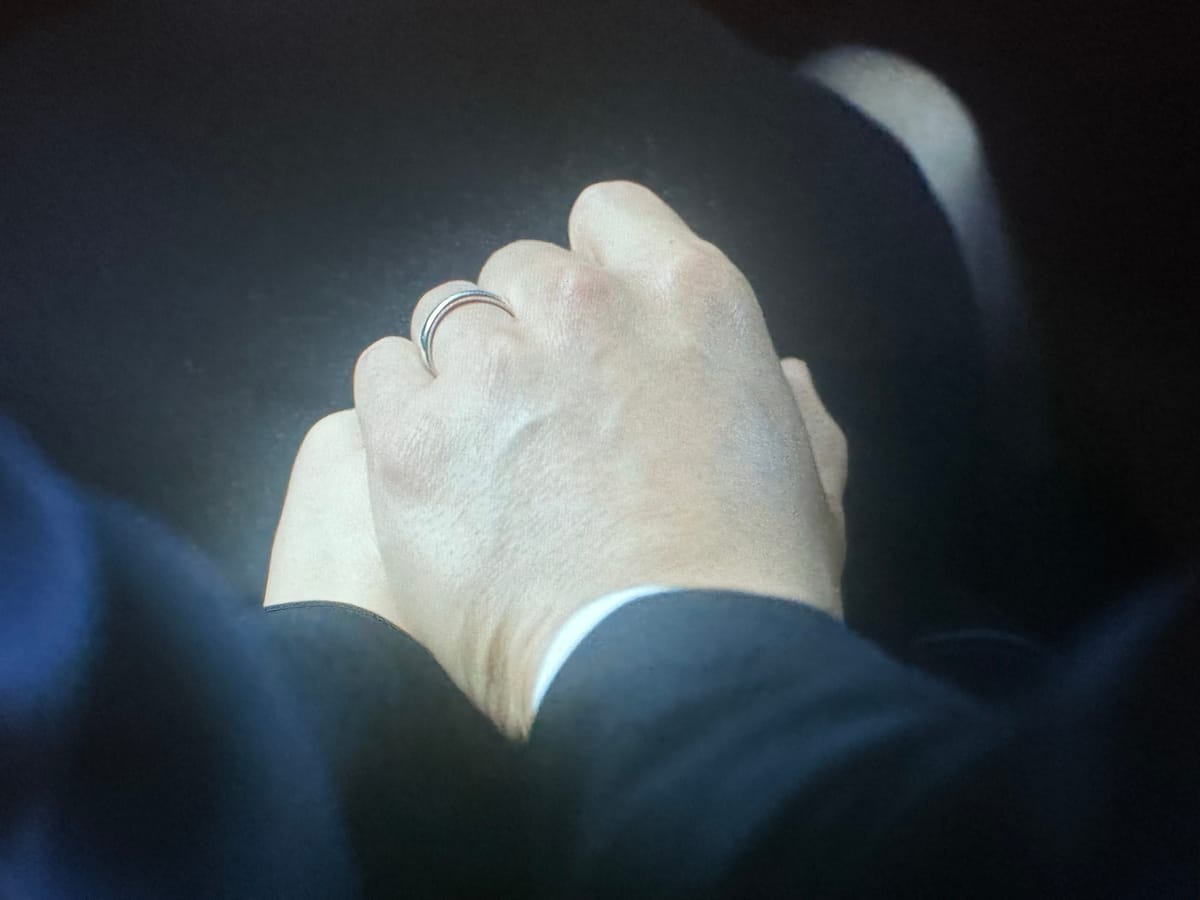Touches

Oto is next seen walking briskly through a medical center hallway, her back to us, once again a ghost, but this time a purposeful one. She turns to the right and sees Kutuku, they embrace. She says “what a relief,” and he says he’s ok. But then he adds that he doesn’t really know if he’s ok yet.
This is the first time he’s seen Oto since the reveal. There’s a heaviness to Kutuku that we haven’t seen before. When he says that they’ve examined him but haven’t revealed the result yet, I get a sense that he wants something to be wrong. He wants something to increase her guilt, make her need to stay closer.
The doctor tells them that he has glaucoma in one eye (he doesn’t tell us which.) Both Kutuku and Oto look so much older in this scene as they get the results. Kutuku asks if he can drive and the doctor says he can if it doesn’t progress too much more — he prescribes drops to lower the pressure on the eye.
I find this diagnosis interesting because the condition is not bad enough to disqualify him from driving, making it possible that it also had nothing to do with his accident. As mentioned previously, the book mentions a different reason for Kutuku needing to stop driving — a drunken driving incident that happens much later in the story’s timeline. The way it’s handled in the film is much more subtle and effective.
The doctor ends this scene by saying that you might doubt the effect of the drops, but you’ll lose your vision if you don’t use them. Oto at this point puts her hand on top of Kutuku’s. He lets it sit there, but does not embrace it back.
We cut to a beautiful shrine in the rain, and then a picture on an altar of a young girl who died February 25, 2001. We see them standing, side by side, in silent mourning for 25 seconds. This is their daughter, who died at the age of four. This also, by the way, places what we are seeing in these early scenes in or 2010 or 2011, likely February 25 of either year. This scene is also likely a week or two after the one at the eye doctor.
The scene then cuts to Oto and Kutuku in the car. The red Saab has just been repaired and Oto is driving. Oto mentions that she knows he would rather be driving it now, which leads Kutuku to give his version of that bit that opened the short story: he says that he loves everything about Oto except for one thing. No, not her adultery, which they still haven’t addressed — her driving. He tells her to face forward and then a few seconds later inquires why she didn’t change lanes. She laughs and says this could qualify as verbal harassment.
Again, Kutuku is displayed in a much kinder light than in Murakami’s story — there’s no general sexism about women driving, just light hearted banter about Oto’s driving. They have just shared a painful experience, recalling the death of their daughter, and are primed to discuss difficult topics.
So Oto asks if he ever thought about having another child and he dodges the question, in a way, saying that it wasn’t something worthy of thinking about because Oto didn’t want to have one. She apologizes, but he says that’s unnecessary, that they made the choice together.
Oto says “I really do love you,” and Kutuku thanks her. She adds “I’m so glad you’re with me.” The camera cuts to their hands. This time they are clasped. Whatever doubt and fear existed before has passed for Kutuku. But you can tell by his answer about kids that there’s so much unexpressed between them.
The single most unexpressed emotion is his terror. He cannot imagine living without Oto, which means doing or saying anything that might ultimately lead to his marriage’s demise.